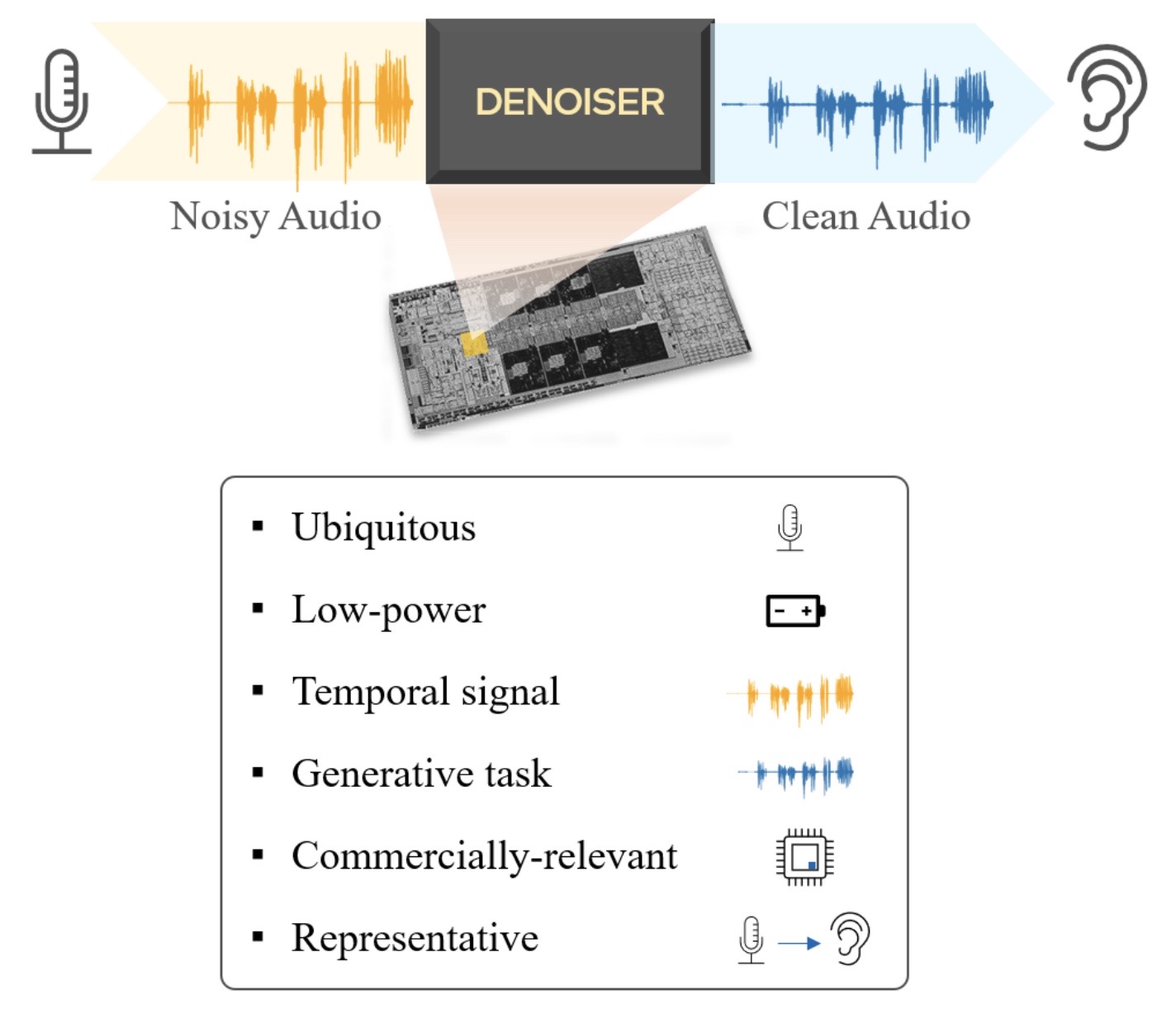MSc thesis project proposal
[2024] A Real-Time Neural Audio Denoising Chip
Audio denoising is critical in modern voice-controlled devices, digital assistants, and other audio-centric applications. The increasing demand for high-quality audio and low-power consumption necessitates the development of efficient and effective denoising techniques. This master's project aims to design, implement, and evaluate a neuromorphic hardware accelerator optimized for audio denoising tasks, taking advantage of the parallelism, low power consumption, and real-time processing capabilities of neuromorphic computing.
The project will investigate state-of-the-art neural network-based audio denoising techniques and their efficient hardware implementation. The expected delivery will be an application-specific integrated circuit (ASIC) accelerating the audio denoising algorithm to achieve less than 10 millisecond latency.
Assignment
- Conduct a literature review on audio denoising techniques and neural network hardware accelerators.
- Analyze the computational and memory requirements of audio denoising algorithms to identify potential optimizations for hardware implementation.
- Design and tape-out (or using FPGA) a novel neural network accelerator chip optimized for audio denoising tasks.
Requirements
- Familiarity with digital circuit design using Verilog.
- Knowledge of deep neural networks.
- Experience with Python and PyTorch.
Contact
dr. Chang Gao
Electronic Circuits and Architectures Group
Department of Microelectronics
Last modified: 2024-06-11
